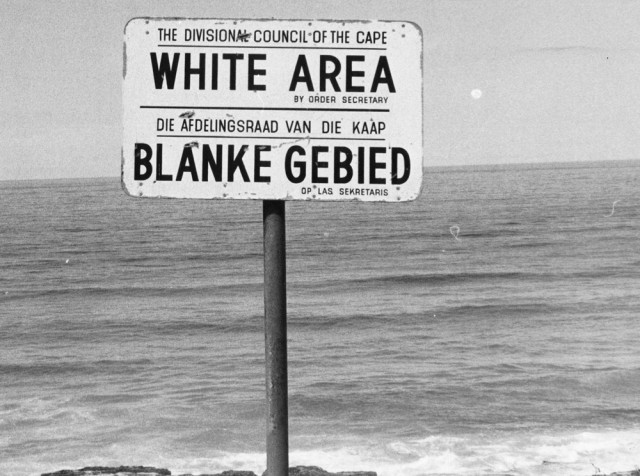Apartheid
Apartheid, a system of racial segregation, was official government policy in the Republic of SOUTH AFRICA from 1948 to 1994. Under apartheid, South African blacks, Asians, and people of mixed ancestry called “Coloureds” were systematically separated from white society, deprived of any participation in government, and subjected to all forms of discrimination.
The idea of white supremacy and racial discrimination had been accepted in South Africa before 1948, and white South African governments had put various segregationist policies into effect. However, it was not until after the 1948 elections, won by the pro-segregation National Party, that these policies became law.
During the 1950s and 1960s, the South African government passed a number of laws that classified people by race. These laws deprived blacks, Coloureds, and Asians of most basic rights—taking away their property, restricting their movement and activities within the country, and forcing blacks to relocate to special “reserves” apart from white society. The laws affected millions of people. They segregated South Africans in every aspect of life and gave a tiny white minority total control over the nation.

By the 1960s other nations had begun to criticize South Africa for its apartheid policies. At the same time, increasing numbers of black South Africans started to protest against apartheid laws. Partly in response, the government accelerated a policy for creating independent, self-governing “homelands” where black South Africans could develop their own societies. This policy, designed to further the separation of blacks, proved a failure. The homelands consisted of poor quality lands, often broken up into small blocks of territory. They did not have the resources to become economically self-sufficient and truly independent. As a result of international pressure, increasing unrest within South Africa, and the worsening of economic conditions in the homelands, the South African government was forced to abandon its apartheid policies. In 1991 the government under President De Klerk repealed the basic apartheid laws. Three years later, the adoption of a new constitution gave equal rights to all South Africans. Despite this change, apartheid has left behind a history of racial conflict, poverty, and inequalities in education, housing, and welfare that will affect South Africa for many years to come. (See also Afrikaner Republics; Biko, Steve; Cape Coloured People; De Klerk, Frederik Willem; Mandela, Nelson; Southern Africa, History; Tutu, Desmond Mpilo; Verwoerd, Hendrik Frensch.)